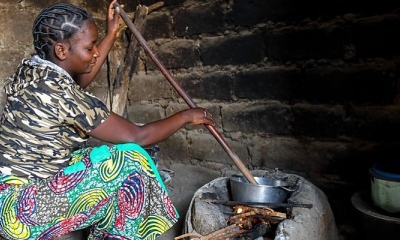University of Oxford
11a Mansfield Rd
OX1 3SZ
UK
About this event
The COVID-19 pandemic has focused global attention on the safety of wildlife trade and consumption. Amid growing concerns around its impact on biodiversity conservation, there is recognition that wild meat is key for food security in many communities as well as global food systems.
This IIED Debates event will explore emerging research into why people eat wild meat and how this evidence can be used to help sustainable wild meat alternatives succeed.
Unsustainable hunting and consumption of wild meat is a known driver of biodiversity loss and can also have implications for public health. The COVID-19 pandemic has resulted in a call for a total ban on wild meat trade and consumption.
Yet millions of people across the globe depend on wild meat as an important contribution to food security. In many rural areas, wild meat is the key source of protein in peoples’ diet and so preventing its consumption would pose a major threat to their livelihoods and wellbeing. It is therefore critical to improve understanding of why people eat wild meat, in order to design interventions that can help improve sustainability and safety.
At this online IIED Debates event, co-hosted by the Interdisciplinary Centre for Conservation Science at Oxford University, The Conservation Foundation and Fondation Camerounaise Terra Vivante we will hear findings from research in Cameroon that sought to understand the key drivers – cultural, economic, nutritional – of wild meat as a food choice and the impacts of COVID-19 on that choice.
Our speakers will discuss what kind of ‘wild meat alternative’ interventions local people do and do not find acceptable.
How can decision-support tools help intervention designers think through critical issues? And what are the implications of these findings for the Convention on Biological Diversity (CBD) guidance on wild meat and for the design of future projects?
About the speakers
Dilys Roe (moderator) is a principal researcher and biodiversity team leader in IIED’s Natural Resources research group
Stephanie Brittain is a postdoctoral researcher at the University of Oxford focusing on local knowledge and drivers of wild meat consumption in Cameroon
Cedric Thibaut Kamogne Tagne is a researcher at the Fondation Camerounaise de la Terre Vivante (FCTV) in Cameroon
Jasmin Willis is a research consultant at the Centre for International Forestry Research (CIFOR) and a visiting research fellow of the Interdisciplinary Centre for Conservation Science at University of Oxford
Professor EJ Milner-Gulland is director of the Interdisciplinary Centre for Conservation Science at University of Oxford
Professor Julia Fa is a professor of natural sciences at the Manchester Metropolitan University
Andrew Fowler is regional lead for West and Central Africa with the Zoological Society of London
About IIED Debates
This event is part of the IIED Debates series. Through the convening of expert speakers and external stakeholders, IIED brings together an international community to discuss critical issues.
IIED Debates encompass both physical and digital events, including critical themes, breakfast debriefs and webinars. These events are public and are hosted regularly throughout the year online and when possible in our London and Edinburgh offices.
About attending
Webinars are online workshops that people can attend via the internet from their desk or portable internet device.
This webinar will use the Zoom video conferencing platform. For those who have not attended a Zoom webinar before, please read this guide to participation as an attendee.
The event will be recorded to be distributed publicly afterwards. By registering for this event, you agree to give your consent for this.
The information you provide will be held on our database to process your booking. We do not share data with any third parties. We may contact you in the future about other IIED events. Please let us know if you do not want to receive any further information from us.

